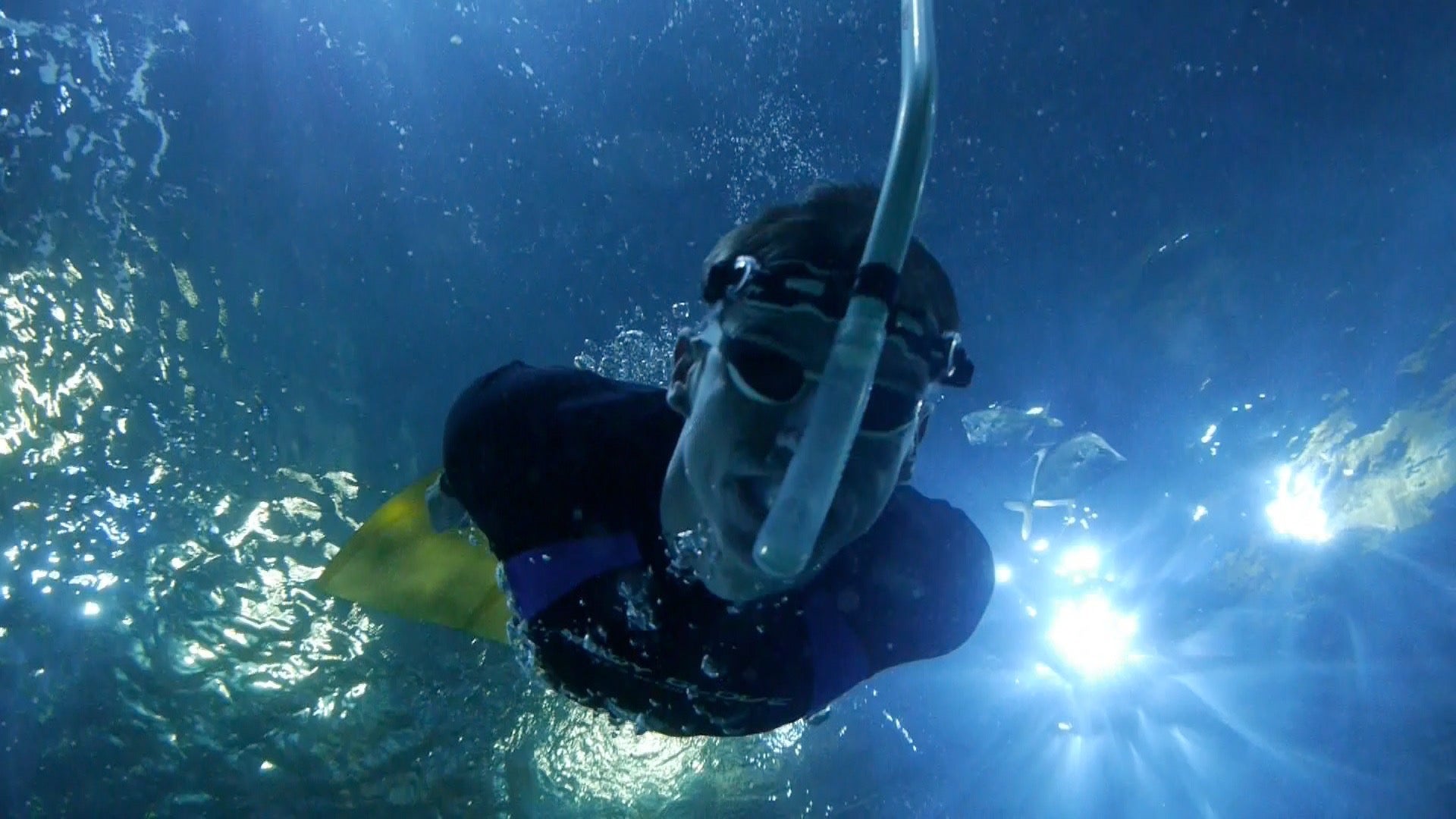A swimmer who crossed the Atlantic will now cross the Pacific—and highlight what a dump it’s become
Ben Lecomte is going on a six-month swim from San Francisco to Tokyo, beginning in September.


Ben Lecomte is going on a six-month swim from San Francisco to Tokyo, beginning in September.
Doing so will require an 80-foot boat, a six-person crew, technology to ward off sharks and navigate extreme weather, and most important, psychological endurance.
“The biggest issue is that it is very boring,” Lecomte tells Quartz. “It is very repetitive. When you swim, you are very isolated. When you swim, it’s always the same stimuli; it’s always the same blue background; it’s always the same noise; it’s always the same feel with the water there always.”
To get through the boredom, the French-born Texan relives his life on land. “To make sure that your mind is occupied for those eight hours, you have a schedule,” he says. “It’s like going to school: Each hour I have a different subject I will focus on. The technique I use is dissociation. For example, if I am going to focus on an event I have enjoyed in the past, like a birthday, I will try to engage all my senses. I try to remember if it was hot, whether the sun was shining on my skin; what did it smell like, what noises were there?”
Since swimming the Atlantic in 73 days about 17 years ago, Lacomte says he has been looking for a bigger challenge. His Pacific swim, however, will not be for purely selfish reasons. Considering his children, he says that he wants to raise awareness of pollution in the world’s waters: “Many things have happened in the past 100 or 150 years, and we need to change our mindset to go forward. It is not sustainable, the way we live now.”
To do so, Lecomte will be a swimming lab. His heart, mouth, and guts will be checked each day to see how the long-term exposure to the Pacific affects his body. Devices attached to his ankles will measure the radioactivity of the water and check for plastics content. Another device will check other plastics to see what DNA is on it and how microbes are reacting with the synthetic materials. He will work with numerous institutions on the research, including the Woods Hole Oceanographic Institution and the Marine Biological Laboratory, both based in Cape Cod, Massachusetts.
Concerns have long been raised that the Pacific is turning into a garbage dump. The writer Winifred Bird said in 2009 that the trash consolidating in the middle of the ocean made up an area of around 13 million sq. km. Rolling Stone this month warned we may have reached the point of no return, citing scientists including James Hansen, formerly of NASA, and Eric Rignot, who still works for the space agency.
Beyond the research, however, Lecomte is excited about the adventure. “Once you have done something [like the Atlantic swim], you think about doing something new and something bigger,” he says. “And there is nothing bigger than the Pacific.”
Of course, beyond the boredom, there are risks with swimming through such a vast expanse of ocean. “If there is a big typhoon coming, we can get out of the way and wait for it to pass and then return,” he says. “I am not going to put myself or the crew in harm’s way. So we will be keeping a very close eye on those systems.”
And then there is Jaws. “I had a shark following me for five days when I was in the Atlantic, but, you know… It’s there, and you try control what you can and not be bothered by that which you cannot.” Netting and a device that creates a magnetic field around the boat and Lecomte should keep any sharks at bay.
That’s not to say Lecomte wants them to stay too far away. “I hope we will see sharks. Because I want to tell the story of how we have killed about 90% of the big fish over the past 100 years. And sharks are very important to the ecosystem.”
Ben Lecomte has an Indie Gogo page to raise funds for his swim.
Follow writer Richard Smart at @tokyorich.